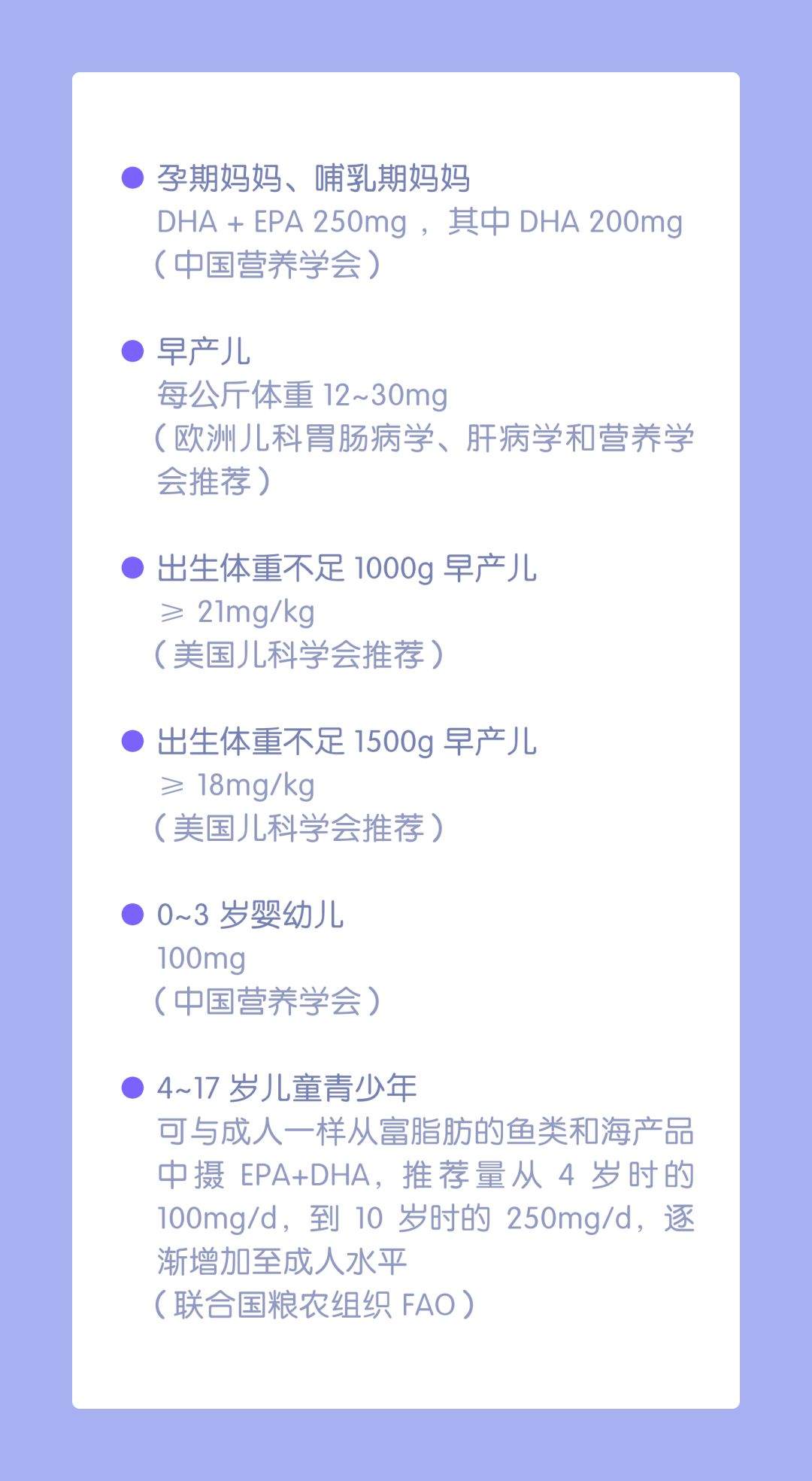[Let children grow up healthily and happily] I believe it is the expectation of most mothers.
However, under the pressure of fierce social competition, mothers also hope that their children can grow up healthily and at the same time [win at the starting line].
Therefore, from the moment the child landed, the focus of mothers’ life shifted to the child and they wanted to give the best to the child.
From a piece of clothes and a toy to all kinds of early education classes, training classes and interest classes, they are all carefully selected!

Brain health, as the basis of a child’s life, is related to the child’s life. Naturally, mothers dare not be careless.
DHA, which has a positive effect on children’s brain development, has also received special attention from mothers without any doubt.
Is your child short of DHA?
Is your method of supplementing DHA to your children scientific?
I believe these are the things that many mothers are worried about.
Today, experts will tell you about DHA ~
What is DHA, DHA is used in what?
DHA, also known as docosahexaenoic acid, is a member of a large family of fatty acids.
The nutritional status of DHA is closely related to the health status of mothers and children.
1. For Mom
For pregnant mothers, adequate DHA intake during pregnancy can reduce the risk of early premature delivery.
For nursing mothers, sufficient DHA can ensure sufficient DHA content in milk.
Mothers during pregnancy and lactation supplement DHA more for their babies.
Part of it is used for the accumulation of DHA in fetuses and infants, because fetuses and infants need nutrition transmission from their mothers to obtain enough DHA, which is crucial to brain and eye development.
The rest is used to meet the mother’s own needs.
2. For children
It has a positive effect on brain development.
Phospholipids in brain gray matter contain a high proportion of DHA.
Between the last 3 months in the mother’s belly and the 2 years after birth, it is the period when the central nervous system of the fetus develops rapidly.
If DHA intake is insufficient, it may affect the development of neurological functions such as children’s behavior and fine movements.
It has a positive effect on visual development.
The concentration of DHA in retinal cell membrane is quite high.
DHA supplementation during pregnancy and infancy is closely related to the visual development of infants.
Regulation of immune function
Adequate intake of DHA during pregnancy and lactation can also reduce the incidence of food allergy in infants.
It plays a certain role in the regulation of immune function.

Many mothers will choose DHA to supplement their children [brain], but there are still many misunderstandings about the way to supplement DHA.
Some Common Mistakes in Supplementing DHA
[Myth 1]: The more DHA is supplemented, the smarter the child is.
DHA does play an important and positive role in children’s brain and vision development.
However, the supplement of DHA is not as much as possible, and should be taken in an appropriate amount.
How much is appropriate for daily intake?
The amount required is also different at different stages.

Do you need DHA supplements?
If the frequency of intake of DHA-containing meals in the diet of pregnant and lying-in women is very low due to dietary preferences or limited conditions, which cannot meet the daily needs of fetal development and baby growth, additional supplement of DHA is necessary.
Premature infants have special conditions and different demands for birth weight. It is suggested to supplement them under the guidance of doctors.
For babies fed with milk powder only, if DHA is not fortified in the selected milk powder formula, it is recommended to obtain DHA through additional supplements.

[Myth 2]: Eating more nuts such as walnuts can supplement DHA
Theoretically, the carbon chain of-linolenic acid can be lengthened and converted into DHA.
However, some studies have proved that the efficiency of converting-linolenic acid into DHA in human body is very low.
In addition, although nuts containing-linolenic acid can provide some DHA sources, they have high fat content, and the recommended daily amount is only 10 ~ 15g. Eating more nuts and gaining weight may not achieve the expected effect!
If you want to get DHA from food, marine fish is a good choice.
DHA contained in marine fish is the result of bioaccumulation. Big fish eat small fish, small fish eat plankton, and plankton eat seaweed. This layer-by-layer accumulation enriches DHA in seaweed into marine fish.
However, bioenrichment is also a double-edged sword, because harmful heavy metals, such as mercury and lead, will also be enriched into fish bodies according to the same principle.
Therefore, the choice of fish is exquisite.
Try not to choose large fish: shark, sailfish, fried fish, square head fish, etc.
More suitable fish choices: Spanish mackerel, pomfret, salmon, saury, sea bass, etc.
However, due to different pollution situations in different sea areas around the world, algal oil DHA is a good choice if mothers are worried about the risk of heavy metals in marine fish.
[Myth 3]: Blind Choice of DHA
DHA on the market is full of beautiful things in eyes, but I don’t know how to start with too many choices.
DHA extracted from seaweed contains almost no EPA and is more suitable for infants who only need DHA.
Fish oil extracted from fish is a combination of DHA and EPA.
EPA in fish oil is a long-chain polyunsaturated fatty acid with the effects of dilating blood vessels and inhibiting coagulation, which is more suitable for the middle-aged and elderly.

